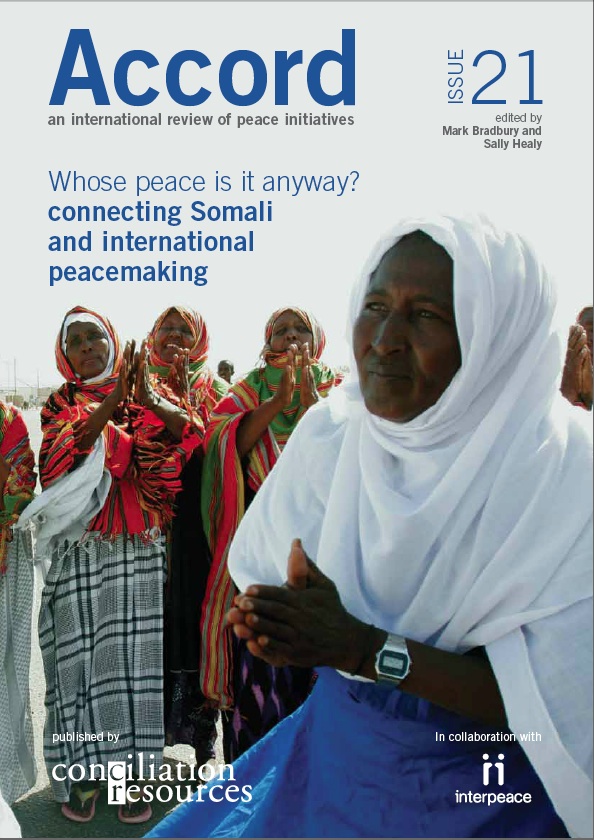Islam has always played a tangible role in peacemaking and peacebuilding. The Ulema command automatic respect and people have always turned to them to help with unresolved disputes. During Somali reconciliation meetings in and outside the country, the Ulema have played important roles by counseling negotiators and speaking to them through the media, urging them to show flexibility and compromise. They would urge leaders to refer to Islam in solving their differences.
Some of the biggest conflict resolution efforts by religious leaders took place in 1991. When clan elders failed to contain violence between Ali Mahdi Mohammed and General Mohammed Farah Aideed in Mogadishu in 1992, Somalia’s most famous Islamic scholars – Sheikh Mohammed Moallim, Sheikh Ibrahim Suley and Sheikh Sharif Sharafow (all now deceased) – met with Ali Mahdi and General Aideed to advise them against war. When the two sides started exchanging heavy gunfire the scholars continued traversing the frontlines lines in the midst of crossfire in a symbolic effort to urge ceasefire.
After the takeover of Mogadishu and much of south central Somalia by the ICU in 2006 the role of the Ulema scholars was taken over by the Courts. The ICU set up the Shura Council, which accommodated most of the leading Islamic scholars. They also formed an executive branch that was tasked with daily operations.
Scholars from Ahlu Sunna Wal Jama, an organisation of Somali Sufi religious leaders created in 1991, found the atmosphere increasingly hostile because of the dominant influence of the Wahhabists and Salafists, who have always challenged and criticised what they perceived as the ‘passive’ role of Sufis in Somali political life.
But not all Islamic Courts were controlled by Wahhabists and Salafists. For instance, in 1994 the Islamic Courts in north Mogadishu were entirely run by Sufis, while Sufi scholars from Ahlu Sunna Wal Jama’a founded some of the clan-based Islamic Courts that were established in Mogadishu in 1998.
All these Islamic groups, including Wahhabists, Salafists and Ahlu Sunna Wal Jama’a, can be considered Ulama. However certain factions from the politically active Islamist groups, such as the Majma’ Ulema (Ulema Forum), Al-Islah and Ahlu Sunna Wal Jama’a claim to be the biggest advocates of Suluh. These groups are most likely to collaborate with each other, but all can co-exist, as they showed before the ICU tookover, and as is further evidenced by the reaction of many Muslim scholars from different groups to the current militancy in Somalia.
In 2009, after the establishment of the new TFG under Sheikh Sharif’s leadership, the Ulema Council was formed in Mogadishu. Two disastrous years of Ethiopian military involvement had sewn confusion over faith and politics.
The primary purpose of the Council was to create a religious authority that could provide moral leadership to the people. However conflict had already erupted between the government and opposition groups. The Ulema tried to tackle the conflict head on, issuing directives that were often controversial. They demanded the withdrawal of AU peacekeeping troops serving with AMISOM within a four-month period and demanded that Parliament be reconvened to adopt Shari’a.
At the same time they called on the opposition to stop fighting the government. In May 2009, after the opposition launched major attacks on the TFG, the Ulema tried to broker a ceasefire between the two sides but the opposition refused. The Islamic scholars have been very clear about the current troubles. Sheikh Omar Faruq, perhaps the greatest living Muslim scholar in Somalia today, denounced any justifications to take up arms against the current government on the pretext of Islam. This has left the opposition Hisbal Islamiya and Jabhatul Islamiya divided on whether to endorse the Ulema’s proposals.

